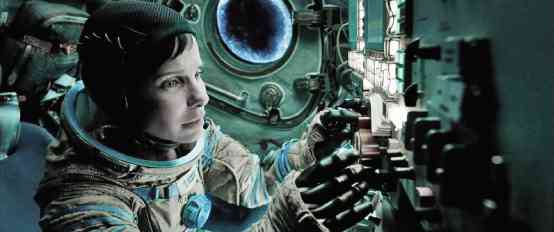Social alienation proves popular in Hollywood’s fall lineup
LOS ANGELES—After a summer of superhero action and feel-good animated comedies, Hollywood has turned to forlorn figures to head fall-winter fare at the box office with films that explore existential dilemmas faced by isolated characters.
The fall-winter months are traditionally when film studios release their top dramas to beat the end-of-year Oscars deadline and build buzz heading into the Hollywood awards season. This year, Hollywood is banking on the socially alienated.
Fantastical comedy
Loners, dreamers, misfits and outcasts show up in fantastical comedy such as “The Secret Life of Walter Mitty,” Alfonso Cuaron’s space thriller “Gravity,” Kimberly Peirce’s remake of Stephen King’s high-school horror, “Carrie,” and the big-screen adaptation of Orson Scott Card’s 1985 sci-fi tale of young people in warfare, “Ender’s Game.”
Walter Mitty, a fictional character from a 1939 short story by James Thurber, defines a person not comfortable in his own skin or surroundings, alienated by idealistic aspirations.
Article continues after this advertisementBen Stiller, the actor and director of “Walter Mitty” said he felt that people would latch on to Mitty’s inability to connect to the world around him.
Article continues after this advertisementAccessible, relatable
“There was something accessible and relatable about the idea of a guy who exists more in his head and isn’t able to be who he wants to be,” he explained.
Stiller’s Mitty is a Life magazine employee, handling the film negatives of its photo archive and embarking on a fantastical journey to find a missing photograph that would go in the final issue before the publication moves online.
“He’s an analogue guy in a digital world. That change is something generational, I can relate to that, and I feel a lot of people will,” Stiller said.
Challenge
Mitty’s challenge in accepting a changing world is echoed in Spike Jonze’s “Her.” It stars Joaquin Phoenix as a lonely writer who develops a relationship with a female-speaking computer system.
The film highlights the increasing disconnect among people as technology brings people together virtually, but segregates them physically.
The social insecurity and alienation also reflects the financial and economic insecurity that occurred in recent years, and has worked its way into today’s films, said Jack Epps Jr., screenwriter of blockbusters, “Top Gun” and “Dick Tracy,” and a professor at the University of Southern California.
“A lot of those films represent the cubicle man and the repressed individual” Epps said. “That’s America thematically pushing against these things, this small person in this global corporate workplace.”
“Carrie” is a classic tale of social isolation and revenge as misfit student, Carrie White, wreaks havoc at her high school prom after being bullied.
“I’m drawn to alienated characters, because they have a huge need to find love, acceptance and normality, to find their way back to the human community,” Peirce said.
The journey of a lonely character continually offers fertile ground for Hollywood writers, Epps explained: “From a screenwriting point of view, a lead character who is trapped and finding himself is always a good story to tell, because the character is relatable.”
In Cuaron’s “Gravity,” social isolation is taken to a whole new dimension. Astronaut Dr. Ryan Stone, played by Sandra Bullock, is tumbling alone through the vast expanse of space and forced to come to terms with her withdrawal from life back on Earth.
Isolation also defines the leading figures in recent young adult films, including “The Hunger Games” with Katniss Everdeen (Jennifer Lawrence) fighting opponents in a battle to the death, and the upcoming “Ender’s Game,” where Ender Wiggin (Asa Butterfield) is selected for his high intelligence level by an army and manipulated into warfare against an alien race.
Reuters
